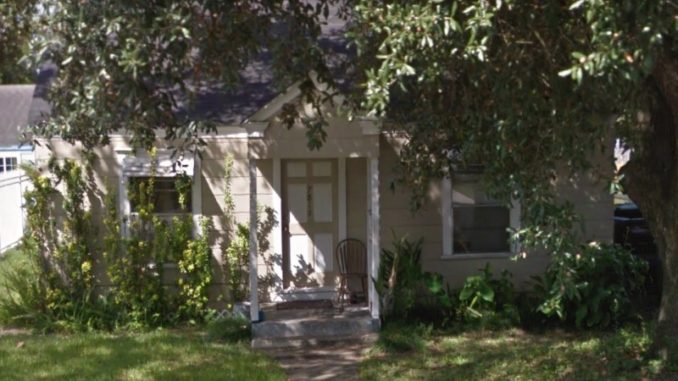
“SEARCHES AND SEIZURES. The people shall be secure in their persons, houses, papers and possessions, from all unreasonable seizures or searches, and no warrant to search any place, or to seize any person or thing, shall issue without describing them as near as may be, nor without probable cause, supported by oath or affirmation.”
The Constitution of the state of Texas – Article 1, section 9
“The right of the people to be secure in their persons, houses, papers, and effects, against unreasonable searches and seizures, shall not be violated, and no Warrants shall issue, but upon probable cause, supported by Oath or affirmation, and particularly describing the place to be searched, and the persons or things to be seized.”
The United States Constitution – Amendment #4
It was the late afternoon of 28 January 2019, and yours truly was winding up another 8-9 hour day of working at home. I’d been busy at my new job, staring at a laptop that had been issued to me by my new employer and working with a colleague to manage some 19-20 petabytes of big corporate data, when I finally went offline and called it a day. I grabbed a soft drink and went online to scour the news. What I found that evening was a story that was racing around, both in mainstream and social media, that four or perhaps five City of Houston police officers had been seriously wounded in a shootout with some suspects in southeast Houston. Initial details were rather sketchy, but any time that several law enforcement officers are injured or killed in a single incident will spark widespread excitement. For anyone to have the guts to go toe to toe with law enforcement in a gun battle confrontation and knock several of them down is someone not to be messed with, right?
But then the details began to emerge. My initial reaction, given that two suspects had been shot dead and that several officers had been wounded in the gun battle, was that it was likely either a large-scale battle with a gang or perhaps a major drug bust. Like many, I was rather shocked to learn that it was a drug raid, but that the Houstonians who were the targets weren’t some easily smeared, desperate, illegal alien banditos with lengthy rap sheets and shady faces. Rather, the home that the Houston Police Department had stormed belonged to one Dennis Tuttle and his wife Rhogena Nicholas, aged 59 and 58 respectively. Tuttle was a veteran of the United States Navy, who had been medically discharged and had apparently been battling some debilitating ailments. His wife, Ms. Nicholas, had a small-time bad check charge filed against her nearly 10 years ago, for which she paid the outstanding amount and the charges were dismissed. The Houston Police Department later reported that they had recovered 18 grams of marijuana and 1.5 grams of a white powder substance, likely cocaine. The couple had been married for 20 years.
“Oh brother,” I thought to myself. This isn’t the stuff of heroism. This is going to get ugly.
The initial statements made by HPD that Mr. Tuttle and Ms. Nicholas were being served warrants because they were alleged drug dealers, not to mention that the family dog had been shot and killed as well, left neighbors outraged. They vigorously protested that Mr. Tuttle and Ms. Nicholas were ordinary everyday people living ordinary everyday lives. Further searching of the Tuttle house supports their belief. Mr. Tuttle and his wife, it seems, didn’t have any of the accouterments one might expect of people who would be big-time drug dealers. The neighbors, it seems, had never seen any stream of visitors at all hours of the day and night coming to pay the Tuttle house a visit. The black tar heroin, which was the basis for the no-knock raid warrant, was nowhere to be found. Crates or bricks of cocaine or marijuana were nowhere to be found either. The Tuttle house was not a barricaded meth lab fortress, hidden off somewhere with security cameras everywhere. Nor were untold bundled wads of hundred dollar bills anywhere to be found either. Instead, it is far more likely that Mr. Tuttle and Ms. Nicholas were ordinary people who probably spent a few nights out of the week smoking a joint together and cuddling up to watch movies.
But now, Mr. Tuttle and Ms. Nicholas are dead and they went down hard. It is far more likely that upon seeing an entire group of strange men suddenly descending on their house and pounding on their door, they went into survival mode and reached for their weapons to defend their home and their lives. Five of the Houston Police officers who were involved in the raid were wounded and injured. And those facts, when combined with widespread suspicions of HPD’s initial accounts of the incident, have struck a raw nerve in the minds of many. Across the political spectrum, everyone from Occupy Houston types to hard-edged, conservative law-and-order Republican friends of mine have condemned what went on that fateful afternoon. The question, however, becomes this: What do we do from here?
On the bitterness of the War on Drugs
The hard reality of the sad story of Mr. Tuttle, his wife, and of those five Houston police officers who were wounded in this shootout is that to anyone who has given real thought to the War on Drugs, none of this should really be much of a surprise at all. Americans have been regaled with stories like the Tuttle / Nicholas case for the past 50 years, ever since Richard Nixon and a Democrat-controlled Congress passed the Comprehensive Drug Abuse Prevention and Control Act in 1970. To be fair, the Act was merely a continuation of the various moralizing efforts by the government since the early years of the 20th century to control various contraband substances. We should have learned from the general failure of Prohibition that comprehensive bans by government to prohibit the production and consumption of medicinal or chemical refreshments were not going to completely succeed in stomping out the ills that ever-smug Progressives were aiming to achieve. Indeed, what the Prohibition Era showed us was that the problems associated with consumption of medicinal or chemical refreshments would be instead replaced with a different set of problems, arguably making the problems and issues associated with drug use worse. Amongst those problems were that since medicinal and chemical refreshments were now illegal, a black market for their production and purchase now existed. That in turn would lead to violence, both to settle disputes in deals, and on the part of producers and dealers in order to gain market share. It would also lead to violence on the part of law enforcement in efforts to enforce bans (as what happened in the Tuttle / Nicholas case). It would also lead to some degree of corruption of law enforcement and of justice, as drug producers, dealers, or users would aim to grease the wheels of justice and pay off law enforcement, prosecutors, or judges to look the other way while they were – ahem – conducting their business.
Fifty years of these horrors have not been enough to dissuade Americans (or most others around the world for that matter) that prohibitions against substances like marijuana, cocaine, heroin, or LSD should be lifted and their production and use legalized. Granted, there have been steady moves over the past 10 years to loosen up laws on marijuana, but that sentiment has not extended to other substances. And so it has been that We the People, through our elected representatives, have continued to order law enforcement to put their lives and reputations on the line by carrying out the dirty, dangerous, and corrupting business of enforcing drug prohibition.
And where do we go from here?
Ergo, since it is still a leap for most Americans (and most Westerners) to swallow the legalization of most drugs, that leaves us with what might come from this incident? There are several reform scenarios that might come out of the Tuttle / Nicholas case:
1) Local television journalist Isiah Carey of Houston’s channel 26 Fox News hosted a program yesterday on the Tuttle / Nicholas case. Panelists on the program agreed that use of no-knock raids by law enforcement lead to extremely dangerous situations for everyone involved – for police and sheriffs, for those they are serving warrants against, and for that matter for any bystanders who might happen to have the misfortune of being in the wrong place at the wrong time while a no-knock raid is being conducted. I would argue that no-knock raids are also unconstitutional. One panelist suggested that if HPD was not willing to give up no-knock raids, then at minimum, body cameras should be required during no-knock raids to show the world what was going on during the raid.
2) This weekend, the Houston Chronicle revealed the bombshell development (at least for many) that HPD officer Gerald Goines, the undercover office agent in the case,
“….had been involved in multiple shootings, racked up a smattering of written reprimands, faced several lawsuits and is currently accused of fabricating a drug deal then lying about it in court to win a conviction against a man who has long maintained he’s innocent.”
Through it all, the longtime narcotics officer consistently racked up glowing reviews and praise from supervisors who called his work “impressive” and wrote that he set a “good example for new officers in the squad,” according to police records. Last month, as Goines lay in the hospital after the gun battle, Chief Art Acevedo praised his courage, describing the 54-year-old sergeant as “strong as an ox” and “tough as nails.”
This scary story suggests, as one of my Libertarian lawyer friends argues, that the police culture depicted in the legendary film Serpico is alive and quite well. If so, then reforms that result in better justice are going to be a Herculean task, given that prosecutors and some good law enforcement officers are prone to overlook the bad apples amongst them. It needs to be stressed here that we need to judge individuals on their character and actions, as Martin Luther King urged us to do, instead of painting the entire Houston Police Department (or all law enforcement) as being brute corrupt thugs unworthy of any trust.
Yet, what will become of Officer Goines? Is he going to merely get a slap on the wrist, something along the lines of “being relieved of duty,” or will there be some prosecution on the grounds of perjury, possible evidence fabrication, or lying under oath? One question to ask yourself is this: What would have happened to Mr. Tuttle and Ms. Nicholas had the HPD officers who executed this drug raid been successful, and apprehended the couple without a shot being fired?
3) The Chronicle story is certainly worth reading. Also worth reading is what Scott Henson over at Grits for Breakfast has been writing about the Tuttle / Nicholas case. Amongst other revelations, he posts that Houston Chronicle journalists and others in the media will have trouble getting all of the information about Officer Goines because of chapter 143 of the Texas Local Government Code that the City of Houston opted into decades ago, which makes disciplinary records of law enforcement officers in “civil service cities” secret. Police unions saw to it that only information about misconduct that results in a suspension is public, and then only a summary, not the whole file. Will this be revisited because of the Tuttle / Nicholas case?
4) Our friends over at Big Jolly Times have been calling for HPD Chief Art Acevedo to be fired over his comments and handling of the Tuttle / Nicholas case. I’m not going to go wading into that swamp here. I would rather leave a decision like that to be made by City of Houston mayor Sylvester Turner and City Council. I would also rather let the issue of Chief Acevedo’s continued future employment become a topic of debate in the upcoming November 2019 City of Houston elections.
It should be clear that we have not yet heard the end of the story of Dennis Tuttle and Rhogena Nicholas. All I can say is that there is a glimmer of hope that this couple didn’t lose their lives in vain. Rather, it may be the case that through their deaths, this most ordinary and unsung of couples just might have shocked us enough to try to make the world a better place.



